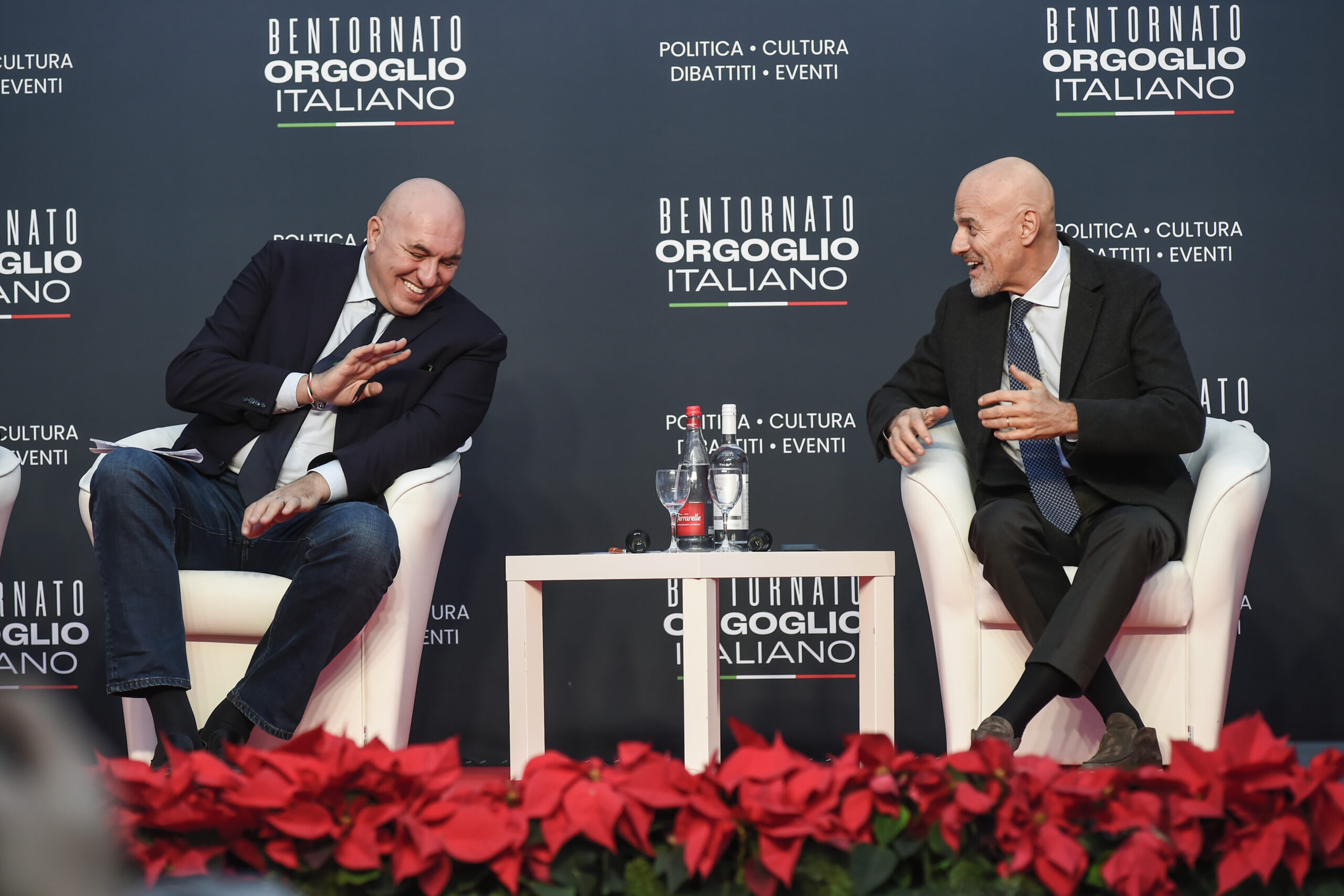How and why Descalzi (Eni) praised the Meloni government in Atreju

What Eni's CEO, Claudio Descalzi, said to Atreju. All the details
Italy needs Africa to guarantee its energy and to reduce exposure to new and disorderly waves of migration. This is the gist of the speech by Claudio Descalzi, CEO of Eni , at Atreju, the political event of Fratelli d'Italia which ended on Sunday.
THE DEBATE IN ATREJU
During the debate Rome at the center of the Mediterranean: what geopolitical role for Italy – which was also attended by the Minister of Defense Guido Crosetto, the President of the Chamber Lorenzo Fontana, the President of the Foreign Affairs Committee of the Senate Giulio Tremonti and the director of Libero Mario Sechi -, Descalzi said that "we need Africa due to the fact that we are a large market without energy"; the African continent, on the other hand, possesses a lot of energy "which however it is unable to exploit": not only rich deposits of fossil fuels, but also high potential for renewable generation.
This contrast between a poor Europe and an Africa full of energy is not new: Descalzi had also presented it to the Financial Times in an interview at the beginning of the year: “we don't have energy, they do. We have a great industrial system, they are developing it. There is great complementarity."
WHAT DESCALZI SAID ABOUT THE FUTURE OF AFRICA, EUROPE AND ITALY
As reported by Agi , a press agency controlled by Eni of which Sechi was director (he was also head of the press office of the Presidency of the Council, before returning to journalism with the direction of the Libero newspaper), in Atreju Descalzi recalled some forecasts on Africa's demographic growth, which from the current 1.2 billion people should reach 1.8 billion in 2030. The continent still suffers from employment problems and lack of access to energy. He specified that "we cannot do charity", but "if we want one billion eight hundred thousand people to find a place and not flee from Africa [we will] have to create development".
Descalzi compared the European market to the American one, recalling how in Europe the price of electricity is six times higher and how the tax on emissions ("around 90-100 euros per ton of CO2") is straining industrial production. “It becomes an existential fact for us,” he added, “to go and invest in Africa in a different way. So far, investments have failed to bring about a continuous virtuous cycle."
This new Italian approach to investments theorized by Descalzi will have to be "organized, structurally feasible" and must guarantee "continuity". “If Africans do not find a solution at home, we are the country most exposed” to migratory flows. “We must therefore help ourselves to solve the problem which has a double face, one of which is the energy continuity which we absolutely need”.
DOES DESCALZI PRAISE THE MELONI GOVERNMENT FOR THE MATTEI PLAN?
Descalzi's statements seem to express satisfaction with the so-called "Mattei Plan", i.e. the collaboration project with Africa and the Mediterranean developed by Giorgia Meloni's government. One of the main areas of cooperation in the plan – which also refers to the founder of Eni, Enrico Mattei – is energy, with the intention of transforming Italy into a gas hub between the Mediterranean region and Northern Europe.
However, the Mattei Plan also aims to improve political coordination with African governments, to strengthen the management of migration and the fight against terrorism, and to promote economic development. President Meloni recently stated that Italy “is working with great determination to build mutually beneficial partnerships” with African countries. It is not yet clear, however, what the concrete initiatives of the Mattei Plan are.
Eni is very present in Africa, especially in Algeria, Libya and Egypt. According to the company, in the coming years these three North African countries will be the main sellers of natural gas to Italy, which before the war in Ukraine was heavily dependent on Russia.
WHAT ABOUT BIFUELS?
In addition to its attention to Africa, Descalzi praised the Meloni government also for its defense of biofuels: these are fuels equivalent to fossil fuels but obtained from organic raw materials (used vegetable oils, animal fats); although they contain CO2 and therefore release it when burned, they have a lower carbon footprint than petroleum derivatives.
The Eni administrator said that in the COP28 agreement, the climate conference in Dubai, biofuels were included among the sources useful for the energy transition "at the request of the Italian government". Electric mobility is "needed", added Descalzi, but "it cannot satisfy all needs": biofuels, for example, can decarbonise the aviation industry , while batteries are too heavy for use in airplanes.
In Italy, Eni owns biorefineries in Porto Marghera and Gela, with an annual capacity of 1.1 million tonnes. The company intends to increase this to 3 million tonnes by 2025 and then to 5 million by 2030.
This is a machine translation from Italian language of a post published on Start Magazine at the URL https://www.startmag.it/energia/descalzi-eni-africa-atreju/ on Mon, 18 Dec 2023 14:59:36 +0000.
